EP 753 College is Actually a Great Equalizer: We’ll Explain
 There is a fact that is so surprising that it borders on being unbelievable. Research indicates that students from disadvantaged and advantaged class backgrounds who graduate from the same college go on to earn the same amount of money. Our guest, Duke sociology professor, Jessi Streib, author of “The Accidental Equalizer: How Luck Determines Pay After College”, posits according to her research. Sociologist Michael Hout goes further in concluding that “college graduation cancels the effects of background status.” So for those who can afford all of the educational enhancement activities and extracurricular functions, starting at birth to 3, when it comes to the workplace, and in this case the business majors studied, luck plays an even greater role in determining the pay a college graduate can expect. In practice no one can prepare an otherwise advantaged candidate college graduate for a job interview that will lead to a better result than disadvantaged graduates. Do you still need to be convinced? Take a listen to this podcast as we explore the rationale for what Professor Streib calls ‘luckocracy’ at work.
There is a fact that is so surprising that it borders on being unbelievable. Research indicates that students from disadvantaged and advantaged class backgrounds who graduate from the same college go on to earn the same amount of money. Our guest, Duke sociology professor, Jessi Streib, author of “The Accidental Equalizer: How Luck Determines Pay After College”, posits according to her research. Sociologist Michael Hout goes further in concluding that “college graduation cancels the effects of background status.” So for those who can afford all of the educational enhancement activities and extracurricular functions, starting at birth to 3, when it comes to the workplace, and in this case the business majors studied, luck plays an even greater role in determining the pay a college graduate can expect. In practice no one can prepare an otherwise advantaged candidate college graduate for a job interview that will lead to a better result than disadvantaged graduates. Do you still need to be convinced? Take a listen to this podcast as we explore the rationale for what Professor Streib calls ‘luckocracy’ at work.
Podcast: Play in new window | Download
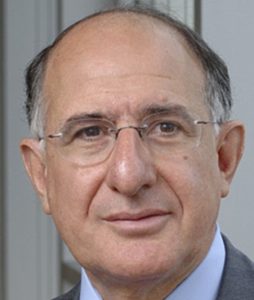 In the next ten years, in the United States alone, 61 trillion dollars will transfer from baby boomers to the younger generations. With that wealth comes the power to determine the structure of our society and economy. The amount of money that will be moving is staggering, unlike another in human history. And how the younger generations value it and the system that produced it will determine the future of societies around the globe. Given that this transfer comes on the heels of various cataclysms, like the 2008 financial meltdown, 9-11 and later the disorienting impacts of the pandemic and growing concerns over climate change, these generations seem to be demonstrating a much different outlook as to their values and priorities. What will that mean for capitalism itself? To discuss this fascinating topic we are joined by Ken Costa, one of the top five deal makers in Europe over the past 25 years and a seasoned investor formerly of UBS Investment Bank(EMEA)and Lazard International and currently chair of Ken Costa Strategic and author of “The Hundred Trillion Dollar Wealth Transfer: How the Handover from Boomers to Gen Z will Revolutionize Capitalism.”
In the next ten years, in the United States alone, 61 trillion dollars will transfer from baby boomers to the younger generations. With that wealth comes the power to determine the structure of our society and economy. The amount of money that will be moving is staggering, unlike another in human history. And how the younger generations value it and the system that produced it will determine the future of societies around the globe. Given that this transfer comes on the heels of various cataclysms, like the 2008 financial meltdown, 9-11 and later the disorienting impacts of the pandemic and growing concerns over climate change, these generations seem to be demonstrating a much different outlook as to their values and priorities. What will that mean for capitalism itself? To discuss this fascinating topic we are joined by Ken Costa, one of the top five deal makers in Europe over the past 25 years and a seasoned investor formerly of UBS Investment Bank(EMEA)and Lazard International and currently chair of Ken Costa Strategic and author of “The Hundred Trillion Dollar Wealth Transfer: How the Handover from Boomers to Gen Z will Revolutionize Capitalism.” “Jews will not replace us” was the cry from far-right extremists a few years back in Charlottesville, Virginia and, in response to counter protests, then President Donald Trump said that there were good people on both sides. Really? In the wake of the brutal attacks on Israeli citizens on October 6, 2023 far-left activists on college campuses took up the cause of the Palestinians in Gaza as a result of Israel’s aggressive response and the question of anti-semitic sentiment among the youth in the America came into view. While the question of whether Jews have better friends from one political ideology or another may be the subject for debating societies around the country, the truth is that even in a nation where Jews have been able to flourish and lead the way in science, business, the arts and medicine, they are never able to look away at the possibility that one day they, too, will join the diaspora looking for a more hospitable environment. It can happen here. Benjamin Ginsberg, the David Bernstein Professor of Political Science and Chair of the Center for Advanced Governmental Studies at Johns Hopkins University and a Research Fellow at the Independent Institute, joins us to discuss his new book, “The New American Anti-Semitism: The Left, the Right, and the Jews.”
“Jews will not replace us” was the cry from far-right extremists a few years back in Charlottesville, Virginia and, in response to counter protests, then President Donald Trump said that there were good people on both sides. Really? In the wake of the brutal attacks on Israeli citizens on October 6, 2023 far-left activists on college campuses took up the cause of the Palestinians in Gaza as a result of Israel’s aggressive response and the question of anti-semitic sentiment among the youth in the America came into view. While the question of whether Jews have better friends from one political ideology or another may be the subject for debating societies around the country, the truth is that even in a nation where Jews have been able to flourish and lead the way in science, business, the arts and medicine, they are never able to look away at the possibility that one day they, too, will join the diaspora looking for a more hospitable environment. It can happen here. Benjamin Ginsberg, the David Bernstein Professor of Political Science and Chair of the Center for Advanced Governmental Studies at Johns Hopkins University and a Research Fellow at the Independent Institute, joins us to discuss his new book, “The New American Anti-Semitism: The Left, the Right, and the Jews.”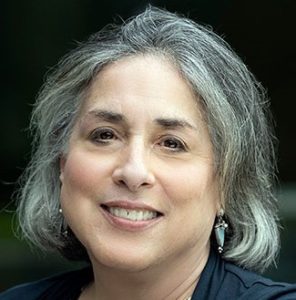 Child care costs, accessibility and quality represent a critical challenge for families across America. And an existential threat to a recovering economy, generally reliant on both parents working to sustain themselves and their families. With federal supports given to this industry during the pandemic that have recently expired, early childhood centers–daycare, early learning and the like–have been shuttering their doors. They cannot find workers, pay them adequately or train them as well as is needed to nourish these young minds. It is so much so a problem that Democrats have been joined by Republicans on the federal and state levels to address it and business associations as well as labor unions are supportive of measures to find public dollars to keep places and spaces open for children in need. Even vaunted Head Start is serving only a small percentage of the children who are eligible for it. Let’s first understand the problem and then offer some solutions. With us to do that is Laura Mutrie, Director of Field Education and Clinical Assistant Professor in the MSW program at Quinnipiac University in Connecticut.
Child care costs, accessibility and quality represent a critical challenge for families across America. And an existential threat to a recovering economy, generally reliant on both parents working to sustain themselves and their families. With federal supports given to this industry during the pandemic that have recently expired, early childhood centers–daycare, early learning and the like–have been shuttering their doors. They cannot find workers, pay them adequately or train them as well as is needed to nourish these young minds. It is so much so a problem that Democrats have been joined by Republicans on the federal and state levels to address it and business associations as well as labor unions are supportive of measures to find public dollars to keep places and spaces open for children in need. Even vaunted Head Start is serving only a small percentage of the children who are eligible for it. Let’s first understand the problem and then offer some solutions. With us to do that is Laura Mutrie, Director of Field Education and Clinical Assistant Professor in the MSW program at Quinnipiac University in Connecticut.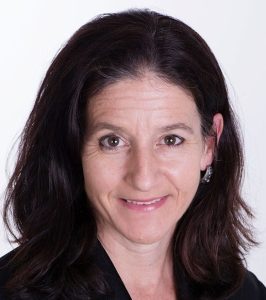 Even if you’re not paying great attention to what’s happening to healthcare in your local community, the trends are hard to miss–hospital consolidations, the growth of out-patient facilities affiliated with the hospitals, and insurance company involvement in medical practices and pharmaceuticals, all of which drive up the cost and limit the choices in healthcare. It’s a distressing picture. Ask your doctor or anyone who’s been trying to access care recently and you’ll hear the same stories about a focus on efficiency over quality and a bedraggled medical support team, including nurses and medical assistants, pressured to improve bottom lines. Regardless of whether a facility is deemed for-profit or non-profit, revenue over expense, is driving what should be medical decisions toward greater concerns for financial outcomes over the specialized needs of patients. So what does one informed, caring practitioner have to say about all of this? Dr. Marion Mass, co-founder of Practicing Physicians of America, shares her concerns with you today
Even if you’re not paying great attention to what’s happening to healthcare in your local community, the trends are hard to miss–hospital consolidations, the growth of out-patient facilities affiliated with the hospitals, and insurance company involvement in medical practices and pharmaceuticals, all of which drive up the cost and limit the choices in healthcare. It’s a distressing picture. Ask your doctor or anyone who’s been trying to access care recently and you’ll hear the same stories about a focus on efficiency over quality and a bedraggled medical support team, including nurses and medical assistants, pressured to improve bottom lines. Regardless of whether a facility is deemed for-profit or non-profit, revenue over expense, is driving what should be medical decisions toward greater concerns for financial outcomes over the specialized needs of patients. So what does one informed, caring practitioner have to say about all of this? Dr. Marion Mass, co-founder of Practicing Physicians of America, shares her concerns with you today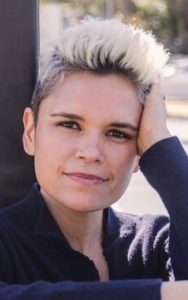 As podcasters go, I don’t generally insert myself into the story line like so many others do. To me, it’s about the guest, their book or their expertise. In the case of this story, I was right in the middle of helping to elevate women’s basketball in America to new heights. As the chief programming executive at Connecticut Public Television for a quarter of a century, one of the achievements I’m most proud of was bringing UConn Women’s basketball to our airwaves in 1994 and developing a franchise that would become the most successful ongoing local PBS project of all time, whether measured in viewers, membership response or underwriting. It was an absolutely amazing 17 year run. ESPN, another Connecticut media outlet, saw our success and, in a sense, the rest is history. What we point out today in this podcast is how that story continues to evolve with the women’s game getting bigger and with more media exposure on both the collegiate and professional level. Kate Fagan, a former ESPNer, along with curator Seimone Augustus and illustrator, Sophia Chang, should be rightly proud of their stunning book, “Hoop Muses: An Insider’s Guide to Pop Culture and the (Women’s)Game.” I truly enjoyed talking with her. Listen in. You will enjoy it, too.
As podcasters go, I don’t generally insert myself into the story line like so many others do. To me, it’s about the guest, their book or their expertise. In the case of this story, I was right in the middle of helping to elevate women’s basketball in America to new heights. As the chief programming executive at Connecticut Public Television for a quarter of a century, one of the achievements I’m most proud of was bringing UConn Women’s basketball to our airwaves in 1994 and developing a franchise that would become the most successful ongoing local PBS project of all time, whether measured in viewers, membership response or underwriting. It was an absolutely amazing 17 year run. ESPN, another Connecticut media outlet, saw our success and, in a sense, the rest is history. What we point out today in this podcast is how that story continues to evolve with the women’s game getting bigger and with more media exposure on both the collegiate and professional level. Kate Fagan, a former ESPNer, along with curator Seimone Augustus and illustrator, Sophia Chang, should be rightly proud of their stunning book, “Hoop Muses: An Insider’s Guide to Pop Culture and the (Women’s)Game.” I truly enjoyed talking with her. Listen in. You will enjoy it, too.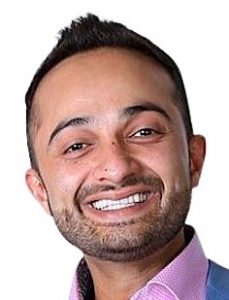 There is no silver bullet when it comes to fixing the crisis we have in providing affordable housing for those who need it. You can look to rising demand with limited supply, foreign ownership of properties in desirable urban areas, restrictive zoning laws, the cost and regulation put on new construction or a myriad of other factors. One thing is for certain the rents and the cost of becoming an owner of a house today are, in the words of a former candidate in New York City, ‘too damn high.’ If the rule of thumb is that 30 percent of your income should go into housing, in many cities it can be as high as 50 percent. In this podcast we can point to some initiatives to address the problem, but city by city, state by state, the problem’s origins may be different. Good housing stock that’s affordable does exist, but not necessarily in the locales people gravitate to. In fact there are some states and localities trying to coax mobile knowledge workers to move from, say, Austin, to Missouri and get a subsidy to do so. It’s a complicated housing landscape. While we might not settle on solutions in this podcast, you will come away understanding the problem better after listening to Vijay Marolia the Chief Investment Officer of Regal Point Capital.
There is no silver bullet when it comes to fixing the crisis we have in providing affordable housing for those who need it. You can look to rising demand with limited supply, foreign ownership of properties in desirable urban areas, restrictive zoning laws, the cost and regulation put on new construction or a myriad of other factors. One thing is for certain the rents and the cost of becoming an owner of a house today are, in the words of a former candidate in New York City, ‘too damn high.’ If the rule of thumb is that 30 percent of your income should go into housing, in many cities it can be as high as 50 percent. In this podcast we can point to some initiatives to address the problem, but city by city, state by state, the problem’s origins may be different. Good housing stock that’s affordable does exist, but not necessarily in the locales people gravitate to. In fact there are some states and localities trying to coax mobile knowledge workers to move from, say, Austin, to Missouri and get a subsidy to do so. It’s a complicated housing landscape. While we might not settle on solutions in this podcast, you will come away understanding the problem better after listening to Vijay Marolia the Chief Investment Officer of Regal Point Capital.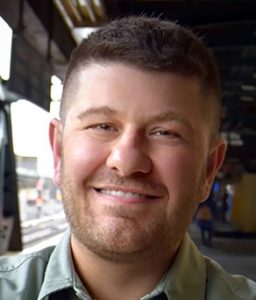 It wasn’t so long ago that many political observers thought that the Democrats’ more centrist policies were being eclipsed by wild eyed progressives, like Sen. Bernie Sanders. In 2020, Joe Biden was written off by many after losing in Iowa and New Hampshire, only to make a remarkable comeback in South Carolina which propelled him to the nomination and the presidency. Today, with the specter of a Donald Trump presidency once again emerging, Democrats of all stripes have seemingly gotten in line behind the old fashioned moderate liberal, President Joe Biden. But the philosophical fissures between the more moderate members of the party and the more progressive, as well as among the many diverse caucuses and constituencies with the Party, have not gone away. Win or lose, they will re-emerge after the 2024 elections. The Squad, led by Alexandria Ocasio-Cortez, and the Problem-Solvers Caucus, looking for middle ground, as stand-ins for the fight to come, have not disappeared. They’ve simply set aside their differences in fighting a more dangerous enemy. In “The Truce: Progressives, Centrists, and the Future of the Democratic Party,” our guest Hunter Walker and his, co-author Luppe B. Luppen explore the personalities and the issues confronting the party going forward.
It wasn’t so long ago that many political observers thought that the Democrats’ more centrist policies were being eclipsed by wild eyed progressives, like Sen. Bernie Sanders. In 2020, Joe Biden was written off by many after losing in Iowa and New Hampshire, only to make a remarkable comeback in South Carolina which propelled him to the nomination and the presidency. Today, with the specter of a Donald Trump presidency once again emerging, Democrats of all stripes have seemingly gotten in line behind the old fashioned moderate liberal, President Joe Biden. But the philosophical fissures between the more moderate members of the party and the more progressive, as well as among the many diverse caucuses and constituencies with the Party, have not gone away. Win or lose, they will re-emerge after the 2024 elections. The Squad, led by Alexandria Ocasio-Cortez, and the Problem-Solvers Caucus, looking for middle ground, as stand-ins for the fight to come, have not disappeared. They’ve simply set aside their differences in fighting a more dangerous enemy. In “The Truce: Progressives, Centrists, and the Future of the Democratic Party,” our guest Hunter Walker and his, co-author Luppe B. Luppen explore the personalities and the issues confronting the party going forward. Many shelters and rescue groups have had a hard time finding canines for all the human who need and want them. As social isolation grows, frayed relationships abound and despair about the human condition intensifies, we’ve begun to turn to dogs for companionship and unconditional love. They never seem to disappoint in the way that humans do. I adopted again during the height of COVID after several years without a dog. And after a rough start because of all that Lucy went through in Tennessee, once again she is my constant companion and dear friend. However, I just have to remind anyone listening yearning for that connection that you have to be willing to put in the work. Often we’re alone at the dog park in bad conditions–one nut and one mutt–because I feel the need to get her the exercise she needs. It’s a daily responsibility. In their new book “The Purest Bond: Understanding the Human-Canine Connection”, our guest Stacey Colino and her co-author Jen Golbeck provide us with great information, new research and insights into that furry friend and his or her behavioral traits that make them so special and, at times, challenging.
Many shelters and rescue groups have had a hard time finding canines for all the human who need and want them. As social isolation grows, frayed relationships abound and despair about the human condition intensifies, we’ve begun to turn to dogs for companionship and unconditional love. They never seem to disappoint in the way that humans do. I adopted again during the height of COVID after several years without a dog. And after a rough start because of all that Lucy went through in Tennessee, once again she is my constant companion and dear friend. However, I just have to remind anyone listening yearning for that connection that you have to be willing to put in the work. Often we’re alone at the dog park in bad conditions–one nut and one mutt–because I feel the need to get her the exercise she needs. It’s a daily responsibility. In their new book “The Purest Bond: Understanding the Human-Canine Connection”, our guest Stacey Colino and her co-author Jen Golbeck provide us with great information, new research and insights into that furry friend and his or her behavioral traits that make them so special and, at times, challenging.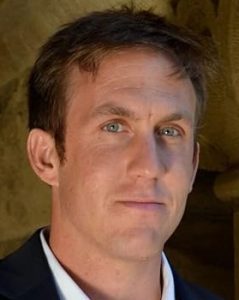 Economics, often called the ‘dismal’ science, may be less akin to science, say physics, than many want us to believe. The neoliberalism of the last forty years was best summarized by Britain’s late Prime Minister, Margaret Thatcher, who suggested that this brand of economics(call it top down with a helping side of profit maximization)is the ONLY way. Economics has a political and moral dimension as we create a tax code, wage standards and labor policies, which all play into economic outcomes. Our guest, a writer for the New Yorker magazine, Nick Romeo, captures the possibilities for a different way of looking at economics in his new book, “The Alternative: How to Build a Just Economy.” Pointing to several real-world models that show us the way, like true-pricing of consumer goods, job guarantees and gig-work platforms that operate as public utilities, he’s trying to remove the scales from our eyes so we can see that there exist new models worthy of our attention so that we can begin to address the dramatic problems we face with income inequality and growing political dissatisfaction.
Economics, often called the ‘dismal’ science, may be less akin to science, say physics, than many want us to believe. The neoliberalism of the last forty years was best summarized by Britain’s late Prime Minister, Margaret Thatcher, who suggested that this brand of economics(call it top down with a helping side of profit maximization)is the ONLY way. Economics has a political and moral dimension as we create a tax code, wage standards and labor policies, which all play into economic outcomes. Our guest, a writer for the New Yorker magazine, Nick Romeo, captures the possibilities for a different way of looking at economics in his new book, “The Alternative: How to Build a Just Economy.” Pointing to several real-world models that show us the way, like true-pricing of consumer goods, job guarantees and gig-work platforms that operate as public utilities, he’s trying to remove the scales from our eyes so we can see that there exist new models worthy of our attention so that we can begin to address the dramatic problems we face with income inequality and growing political dissatisfaction.